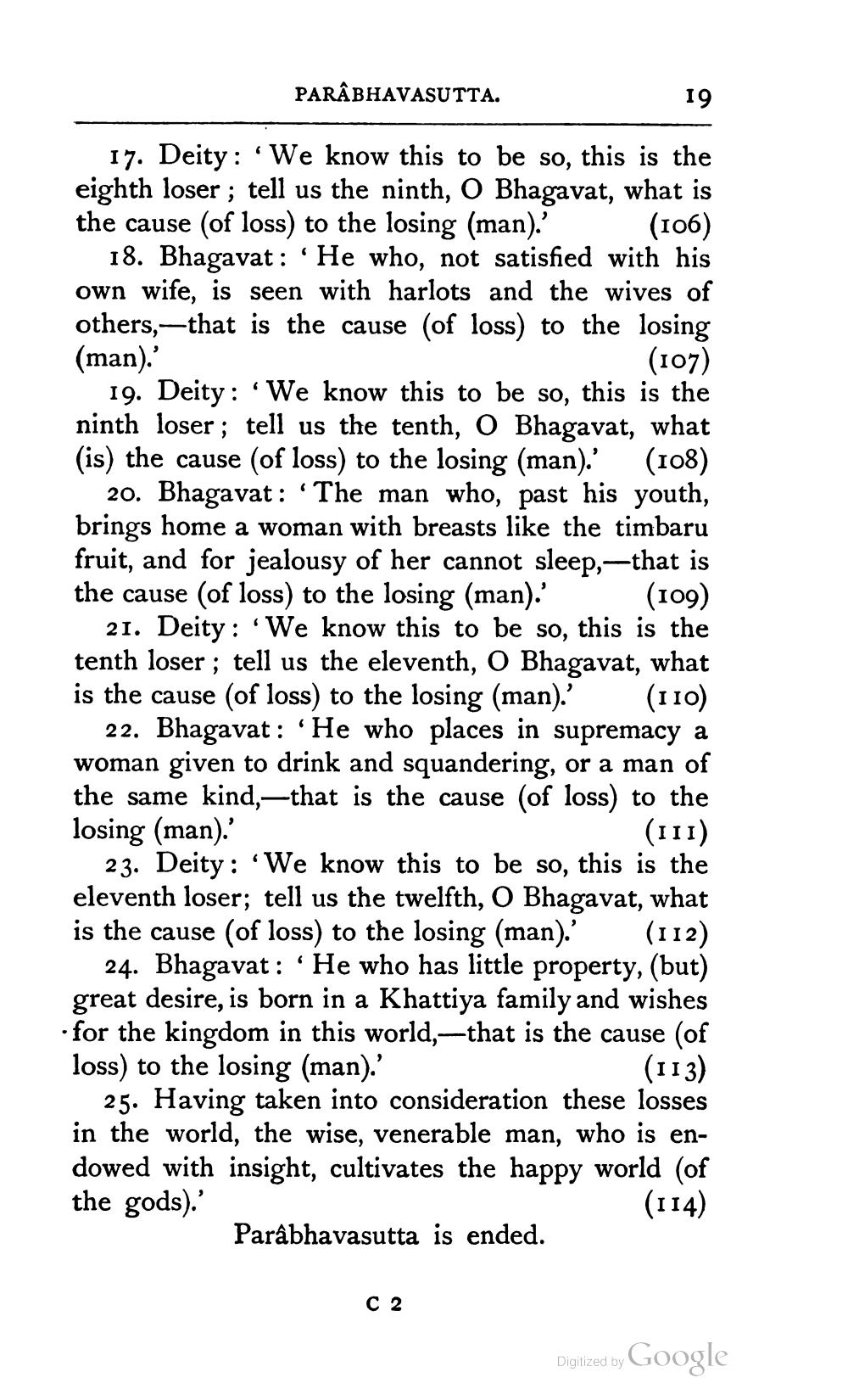________________
PARÂBHAVASUTTA.
17. Deity: 'We know this to be so, this is the eighth loser ; tell us the ninth, O Bhagavat, what is the cause (of loss) to the losing (man). (106)
18. Bhagavat: 'He who, not satisfied with his own wife, is seen with harlots and the wives of others,—that is the cause (of loss) to the losing (man).'
(107) 19. Deity: 'We know this to be so, this is the ninth loser; tell us the tenth, O Bhagavat, what (is) the cause (of loss) to the losing (man).' (108)
20. Bhagavat: 'The man who, past his youth, brings home a woman with breasts like the timbaru fruit, and for jealousy of her cannot sleep,—that is the cause (of loss) to the losing (man). (109)
21. Deity: 'We know this to be so, this is the tenth loser ; tell us the eleventh, O Bhagavat, what is the cause (of loss) to the losing (man). (110)
22. Bhagavat: 'He who places in supremacy a woman given to drink and squandering, or a man of the same kind,—that is the cause (of loss) to the losing (man).'
(111) 23. Deity: 'We know this to be so, this is the eleventh loser; tell us the twelfth, O Bhagavat, what is the cause (of loss) to the losing (man). (112)
24. Bhagavat: 'He who has little property, (but) great desire, is born in a Khattiya family and wishes • for the kingdom in this world,—that is the cause (of loss) to the losing (man).'
(113) 25. Having taken into consideration these losses in the world, the wise, venerable man, who is endowed with insight, cultivates the happy world (of the gods).'
(114) Parâbhavasutta is ended.
C 2
Digitized by Google




